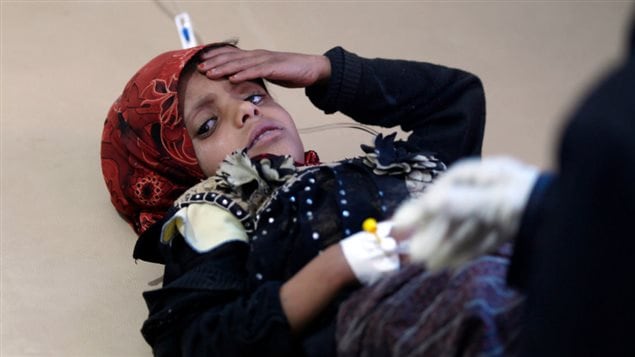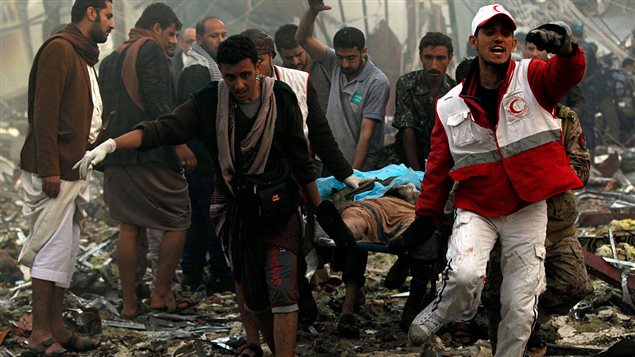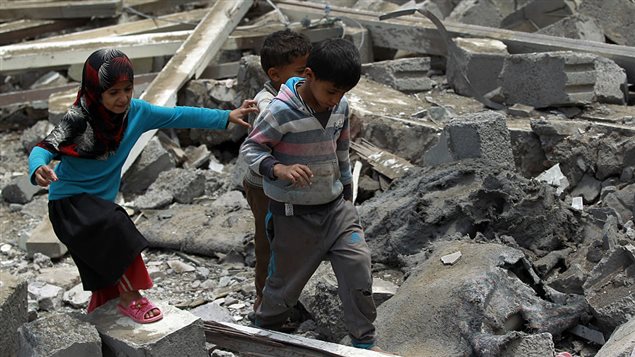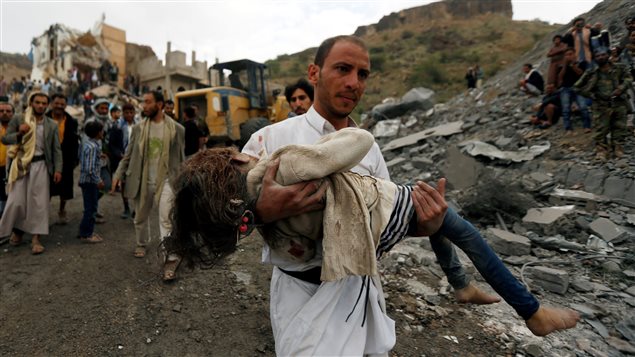The United Nations has called it a “deplorable, avoidable and completely man-made catastrophe.”
Stephen O’Brien, Under-Secretary-General for Humanitarian Affairs and Emergency Relief Coordinator, told the Security Council earlier this month that the situation in Yemen continued to worsen and ravage the lives of millions of people facing famine, the world’s largest ever single-year cholera outbreak, daily deprivation and injustice.
O’Brien said it grieved him that in the last two years, despite his best efforts, he had been unable to make any significant improvement in the war-torn country.
“On the contrary, the Yemini people’s suffering has relentlessly intensified,” he added. Some 17 million Yemenis did not know if and where they would get their next meal, nearly 7 million were facing the threat of famine, and 16 million lacked access to water, he continued, also adding: “We must remember that these figures represent human faces and enormous suffering.”

Yemen’s catastrophe was the direct result of deliberate policies, tactics, and actions of the parties and their big, powerful proxies, he said.
Only 45 per cent of health facilities remained functioning and some 1.2 million public employees, including health workers and teachers, had been paid erratically or not at all since last October.
“This human tragedy is deliberate,” he stressed.
But Thomas Juneau, assistant professor at the Graduate School of Public and International Affairs at the University of Ottawa, said he expects things to get worse before they get better.
I spoke to Juneau, who studied in Yemen in 2007, to understand what drives the ongoing conflict and get a crash course on its roots and its possible outcomes.
(click to listen to the full interview with Thomas Juneau)
Listen
“The very sad thing is I don’t see this conflict being resolved any time soon,” Juneau said. “There is a lot of talk in the Middle Eastern media of progress behind the scenes in trying to stop or at least limit the Saudi intervention. That would be a very good first step but that would not help solve the massive problems domestically in Yemen that are at the source of this war.”
Saudi Arabia appears to want to find a face-saving way to get out of Yemen, Juneau said.
“I think it’s taken way too long but they understood that this has been a disaster for Yemen but also for them,” Juneau said. “This is a very costly intervention financially, reputationally that is not paying off at all so they do want to leave.”
But that’s easier said than done.

The Saudis have to extricate themselves in a way that cuts their losses, he said.
“But even if Saudi Arabia goes, the massive political difference between Sana’a and the Houthis, between Sana’a and the south, the presence of al-Qaida in large chunks of the country, especially in the south and the east, all of that will not be resolved when Saudi Arabia leaves,” Juneau said. “On that level I’m not optimistic at all.”
The conflict will evolve but peace and stability in Yemen are very far off, he said.
“The humanitarian catastrophe will get worse before it gets better despite what happens with Saudi Arabia at a political level,” Juneau said.








For reasons beyond our control, and for an undetermined period of time, our comment section is now closed. However, our social networks remain open to your contributions.